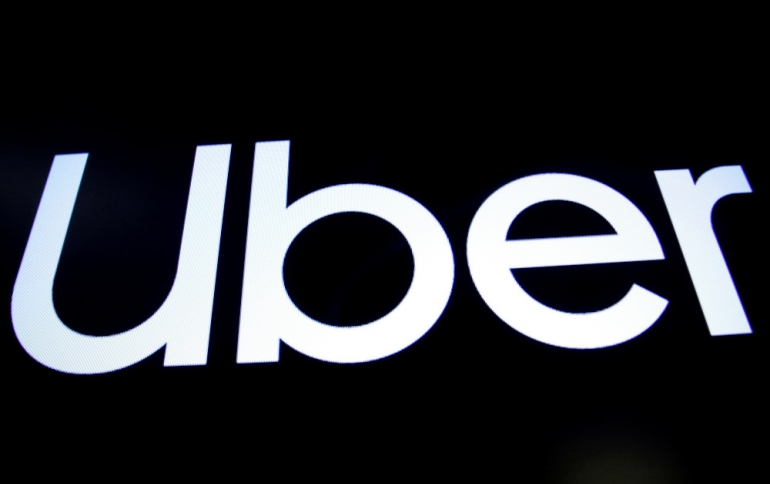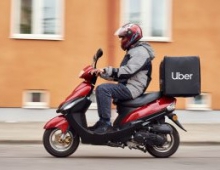
Uber Posts Quarterly Loss and Low Sales
Uber Technologies's results continue to fuel doubts on whether the company has a growth potential.
The ride-hailing company reported second-quarter adjusted sales that fell short of estimates and posted a net loss of $5.24 billion, by far the largest ever for the business.
Most of the loss reported Thursday was attributed to stock-based compensation associated with the initial public offering in May. The adjusted loss—a more commonly used metric for ride-hailing companies, which excludes interest, tax and other expenses—more than doubled to $656 million.
Adjusted revenue in the second quarter increased 12% from a year earlier, the slowest rate in the company’s history. The San Francisco-based company generated $2.87 billion in adjusted revenue for the second quarter.
Dara Khosrowshahi, the chief executive officer, suggested the business had a broader problem with bloat last week, when the company said it would cut about 400 employees in marketing.
On a call with reporters Thursday, Khosrowshahi acknowledged those concerns, while defending the business as one with “growth rates that companies at our scale would kill for.” However, he said, “the law of large numbers at some point will catch up with you.”
However, Uber managed to grew both its monthly riders and its global bookings by nearly a third. Its global bookings reached nearly $15.8 billion, up 31% year-over-year. Its monthly active riders hit 99 million, up 30%. It also grew its take-rate for its food delivery service, Uber Eats, despite a competitive environment that saw DoorDash raise another $600 million in May.
“Our platform strategy continues to deliver strong results, with Trips up 35% and Gross Bookings up 37% in constant currency, compared to the second quarter of last year,” said Dara Khosrowshahi, CEO. “In July, the Uber platform reached over 100 million Monthly Active Platform Consumers for the first time, as we become a more and more integral part of everyday life in cities around the world.”
“While we will continue to invest aggressively in growth, we also want it to be healthy growth, and this quarter we made good progress in that direction,” said Nelson Chai, CFO. “In Q2, Adjusted Net Revenue grew 26% year-over-year in constant currency and excluding our Driver Appreciation Award, which is an acceleration from Q1. Adjusted EBITDA also improved meaningfully from Q1, driven by a $337 million sequential improvement in Core Platform Contribution.”
Rival Lyft, which operates the No. 2 ride-hailing app in the U.S., indicated that the price war with Uber is abating and that the company expects to lose less this year than in 2018.





















